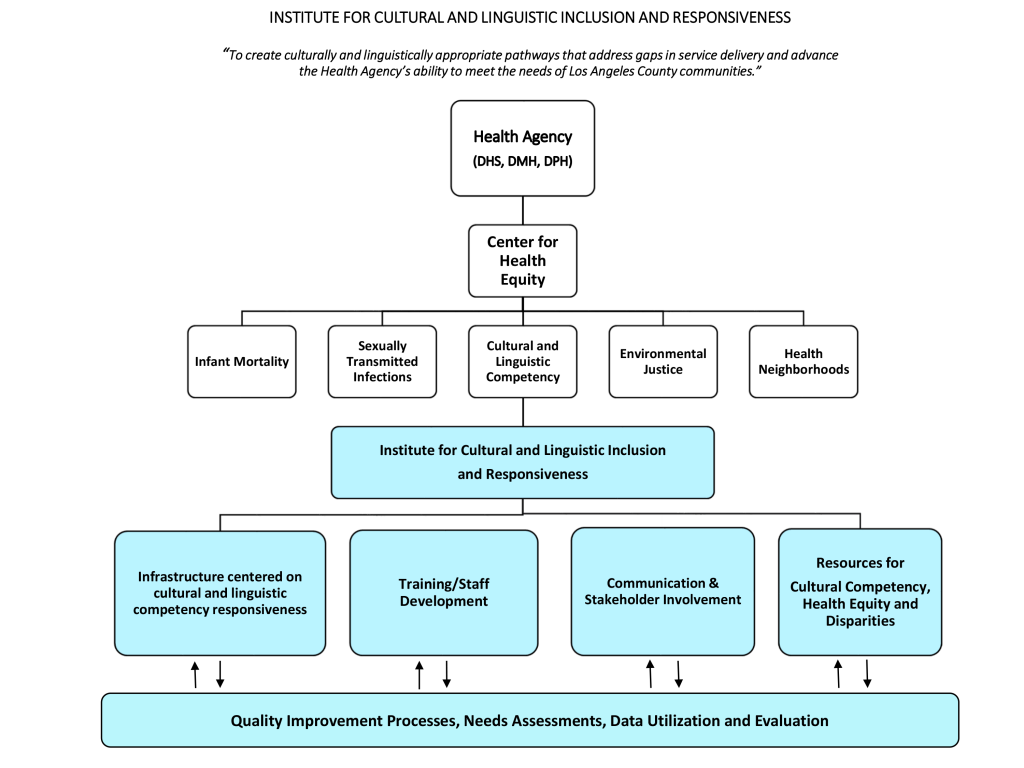The Access to Culturally Competent and Linguistically Appropriate Programs and Services workgroup reorganized to implement the Cultural and Linguistic Competency initiative under the Center for Health Equity. Conferred with this new identity and led by DMH, representatives from the three Departments established ICLIR on April 4, 2018. The mission of the Institute is to create culturally and linguistically appropriate pathways that address gaps in service delivery and advance the ability to meet the needs of Los Angeles County communities.

The ICLIR Framework
Infrastructure centered on cultural and linguistic competency responsiveness – ensures active collaboration among the three Departments to:
- Identify and respond to cultural and linguistic service delivery gaps within the Health Agency
- Establish appropriate goals in accordance with the Departments’ cultural and linguistic competency reporting requirements and ICLIR’s mission statement
- Assess the functionality of cultural competence-related policies and procedures for ICLIR
Training and staff development activities – endows DHS, DMH, and DPH staff with additional skill sets that enhance cross-cultural awareness, sensitivity, and humility, and decrease implicit bias
Communication and stakeholder involvement mechanisms – focuses on collaborative efforts to:
- Build effective processes for the transmission of information related to cultural competency and linguistic appropriateness within Departments and across the Health Agency
- Gather and respond to feedback received from stakeholders including consumers, family members, peers, advocates, Promotores de Salud, and staff.
Resources for cultural competency, health equity and disparities – comprises a virtual repository for useful literature and toolkits pertinent to cultural competence, health equity, and health disparities which inform service planning, delivery, and evaluation.
The ICLIR four domains are sustained by the following commitments:
- Improve the Health Agency’s quality of culturally and linguistically competent services
- Respond to gaps in service delivery
- Fulfill needs assessment follow-up actions
- Utilize data to identify and evaluate the effectiveness of interventions
- Build cross-departmental responsibility to share resources
